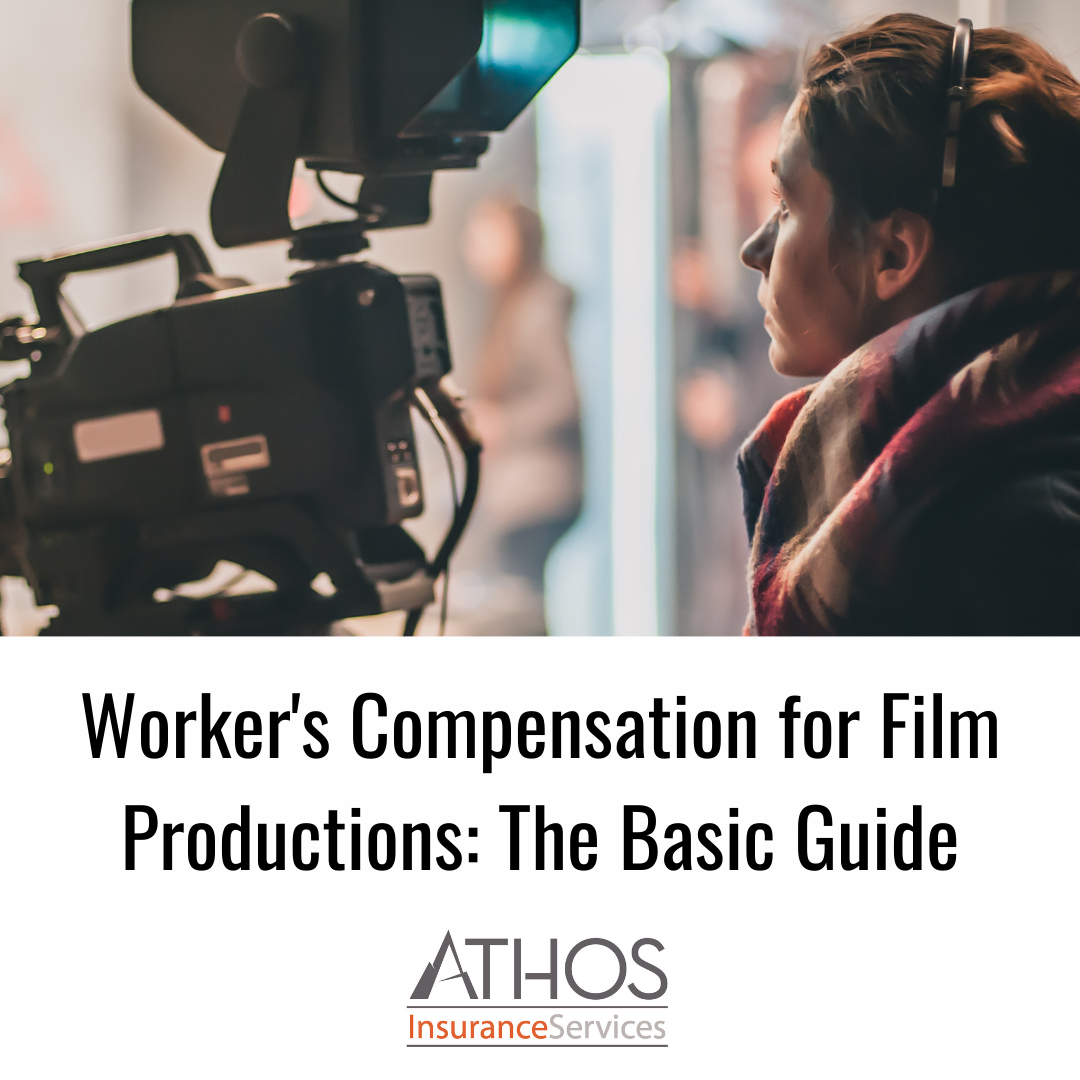Worker's Compensation for Film Productions: The Basic Guide
By: Christina Lam
Published on: 9/30/2021 11:41:00 AM
You’ve probably heard the term “workers’ comp,” but unless you’re in HR or a business owner, it may just sound like another buzz word that gets thrown around. Let’s talk about what workers compensation is and how it relates to film production.
Workers comp, which is short for “workers' compensation,” is insurance coverage that you take out for your business that reimburses employees for work-related illness or if they're injured on the job. Because let’s face it, things happen. And sometimes those things happen to your employees. And when they do, they can sue you. So let’s get into it.
Each state will have its own laws and statutes as respects to what is an employee, what is an independent contractor, and whether or not independent contractors can be insured by a workers’ comp policy. For example, in California, the employer/policyholder should review both the ABC test and the Borello test for workers’ comp purposes. If you're also in California, you can read more information about the ABC test here.
If you're an employer who controls the work aspect of the contractor's “work life” such as work hours, functions, pay rates, etc., this may qualify them to be an employee eligible for workers' compensation.
Let’s say you own a cafe. Is the waiter an employee? The baker? The candlestick maker? The waiter is an employee. You make his schedule, you decide his pay rate. The baker is most likely the same, unless you source the pastries from another bakery.
Photo by Priscilla Du Preez on Unsplash
As for the candlestick maker, I’m gonna need a little more information. Such as, where’d you find a candlestick maker? Does he make candles too, or just the sticks? You get the idea.
So, how about the plumber who fixes your toilet? Nope, she’s an independent contractor. Why? Because you don’t control the work aspects of her life. You don't control her hours, pay, or work activities she’s required to perform.
Now, if she’s an on-staff plumber because you’re all jamming the toilet so much, then she’d be an employee. But in that case, try re-evaluating your diet and then worry about who's covered by workers comp.
So plumbers, and anyone else you contract with, are independent contractors. They tell you when they’ll get there and how much you’ll have to pay.
You may be wondering, how does this relate to production, and why all the talk about coffee shops? Is it because I’ve been cooped up in the house too long writing these articles and am dreaming of a nice espresso and croissant? Most likely, yes. But, it’s also an easy example to start with.
When it comes to film production, most people on set are independent contractors. These include ADs, Production assistants, grips, gaffers, camera crew, etc. There are employees as well, usually receptionists, assistants, etc, who are hired annually or part-time and given a W-2. But most of the folks you see on set, scurrying around, carrying equipment, frantically shouting that we’re “burning daylight” are contractors, who are paid by 1099s. While they are technically independent contractors, they can be covered under workers comp because of the nature of their work and how their schedules are typically dictated by the production. It is advantageous for production companies to cover them in case of an injury on set. Production work can be higher risk than you might think, with a lot of moving parts, new locations all the time, and heavy equipment. So even though it's more costly to cover contractors under a workers comp policy, it’s still advantageous to both parties: for production to protect itself from liability, and for contractors themselves, since they generally aren’t providing their own.
Photo by Rendy Novantino on Unsplash
Does your production need coverage options? Or, do you have any questions about what coverage you might need? Athos offers policies that include workers’ comp, and our friendly agents can help you find the right policy for your specific situation.
But if you just need workers’ comp by itself, there are a few other options. You can go through your state fund or work with a payroll company that can add the workers’ comp coverage on top of payroll.
We always hope production goes smoothly and we can create that Hollywood magic without any major hiccups. But for the times when things go awry in ways we never even suspected, make sure you and your employees are covered. Give us a call today and know you’re in good hands.
